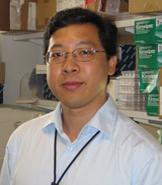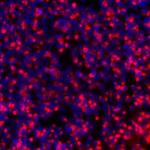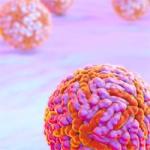
Research Topics
The Integrative Immunobiology Section is interested in understanding how gene expression programs are orchestrated as cells differentiate from stem cells into various lineages in the immune system. In particular, the laboratory studies how these systems are controlled by microRNAs, long non-coding RNAs, and RNA-binding proteins. Our major goal is to discover novel molecular circuits that control cell fates in the hematopoietic and immune systems, since perturbations in their genetic programming underlie many diseases including cancer, immunodeficiency, autoimmunity, inflammation, allergy and infectious diseases. To address these fundamental issues, we employ an integrative systems biology approach to reverse engineer the molecular logic of cellular differentiation. We combine genome- and transcriptome-wide measurements with experimental perturbations in order to test and refine our models. As one example of our success, we identified the RNA-binding protein Lin28b as a lineage-determining factor for fetal hematopoietic stem cells, a discovery with potentially important implications for Regenerative Medicine. At a basic level, we demonstrate the concept of post-transcriptional (re)programming of cell fate decisions.
A cell's fate is largely determined by its transcriptome and proteome which are regulated by transcriptional and post-transcriptional networks. Often models of gene regulatory networks are depicted as an integrated circuit that processes input to mediate an output. We believe that models of gene regulatory networks need to integrate RNA-binding proteins, long non-coding RNAs (lncRNAs), and microRNAs (miRNAs). Chromatin regulators and transcription factors with the aid of lncRNAs control the accessibility and transcription rate of protein-coding and non-coding genes while RNA-binding proteins collaborate with untranslated RNAs to orchestrate the processing, transport, translation, and stability of RNA transcripts. Post-transcriptional regulation has evolved an important additional layer that shapes the transcriptome in response to developmental and environmental cues that may not be achievable by transcriptional regulation alone. Adapted from Exploring the RNA world in hematopoietic cells through the lens of RNA-binding proteins.
Biography
Dr. Muljo earned his Ph.D. from the Graduate Program in Immunology at The Johns Hopkins University School of Medicine. Part of his dissertation work was performed at the department of molecular and cell biology in the division of immunology and pathogenesis, University of California, Berkeley. This was followed by a postdoctoral fellowship at the Immune Disease Institute (formerly the Center for Blood Research), Harvard Medical School. He was recruited to the Laboratory of Immunology (LI) in 2008 as a tenure-track investigator. In 2016, he was promoted to tenured Senior Investigator and is head of the Integrative Immunobiology Section within the Laboratory of Immune System Biology. He is a faculty member of the NIH-Penn, NIH-JHU and NIH-OxCam graduate partnership programs.
Selected Publications
- Yuan J, Nguyen CK, Liu X, Kanellopoulou C, Muljo SA. Lin28b reprograms adult bone marrow hematopoietic progenitors to mediate fetal-like lymphopoiesis. Science. 2012;335(6073):1195-200.
- Escobar TM, Kanellopoulou C, Kugler DG, Kilaru G, Nguyen CK, Nagarajan V, Bhairavabhotla RK, Northrup D, Zahr R, Burr P, Liu X, Zhao K, Sher A, Jankovic D, Zhu J, Muljo SA. miR-155 activates cytokine gene expression in Th17 cells by regulating the DNA-binding protein Jarid2 to relieve polycomb-mediated repression. Immunity. 2014;40(6):865-79.
- Kanellopoulou C, Gilpatrick T, Kilaru G, Burr P, Nguyen CK, Morawski A, Lenardo MJ, Muljo SA. Reprogramming of Polycomb-Mediated Gene Silencing in Embryonic Stem Cells by the miR-290 Family and the Methyltransferase Ash1l. Stem Cell Reports. 2015;5(6):971-978.
- Wang S, Chim B, Su Y, Khil P, Wong M, Wang X, Foroushani A, Smith PT, Liu X, Li R, Ganesan S, Kanellopoulou C, Hafner M, Muljo SA. Enhancement of LIN28B-induced hematopoietic reprogramming by IGF2BP3. Genes Dev. 2019;33(15-16):1048-1068.
- Foroushani AK, Chim B, Wong M, Rastegar A, Smith PT, Wang S, Barbian K, Martens C, Hafner M, Muljo SA. Posttranscriptional regulation of human endogenous retroviruses by RNA-binding motif protein 4, RBM4. Proc Natl Acad Sci U S A. 2020;117(42):26520-26530.
Related Scientific Focus Areas
This page was last updated on Tuesday, August 22, 2023




